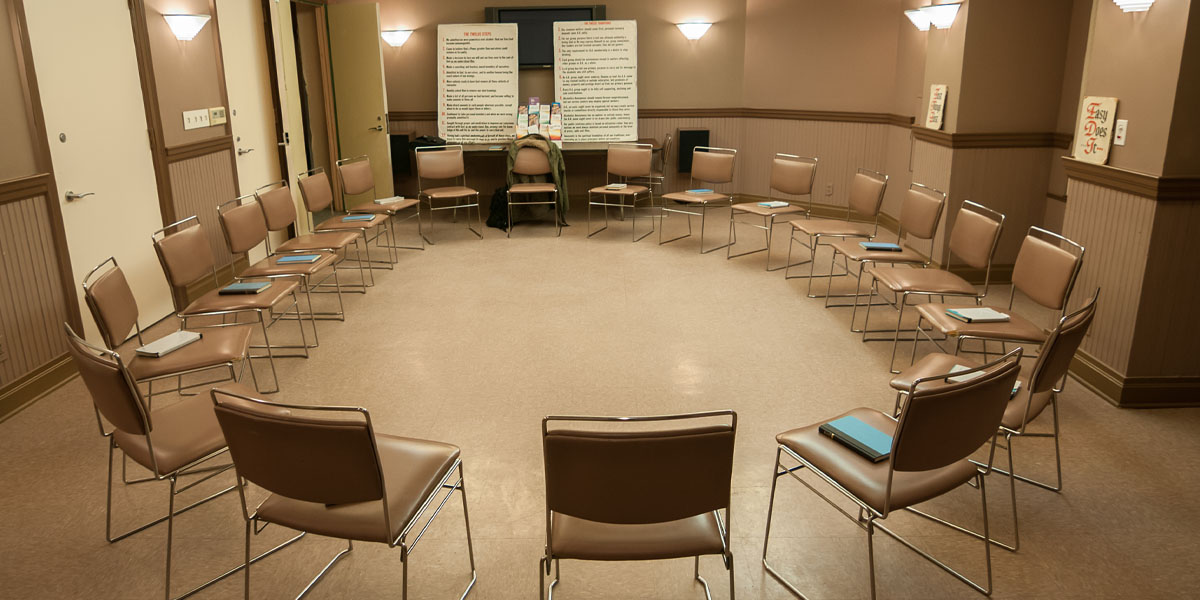Over 95% of rehabs in the United States are 12-Step-based, making it one of the most prevalent models of addiction treatment in the country. If you’ve gone through AA, or other recovery programs before, chances are you’ve encountered the 12 Steps.
You may be wondering if the 12-Step model is the best form of treatment then, given how widely adopted it is. The truth is, despite its popularity, we don’t have much concrete data regarding its effectiveness. That’s because the 12 Steps originally grew from a program rooted in anonymity. We’ll explore this more below.
So, if it’s not necessarily the best treatment model for addiction recovery, are there other options? The good news is, there are many different treatment models out there.
At The Sanctuary, our program follows a holistic, non-12-Step model of addiction recovery. And while we are non-12-Step, we’re not anti-12-Step. We know that the path to recovery is a personal one, and many people have had success with the 12 Steps. We support all paths that help people recover from addiction.
To better understand the 12-Step model and how our program differs, let’s look into the following:
- Understanding the history behind the 12 Steps
- What’s the science behind the 12 Steps?
- Are there alternatives to the 12 Steps?
- The Sanctuary’s holistic, non-12-Step approach
- What’s the science behind The Sanctuary’s program?
- What does recovery look like?
Understanding the History Behind the 12 Steps
The 12 Steps were first laid out in 1939 by the co-founder of Alcoholics Anonymous, Bill Wilson, in the Alcoholics Anonymous book – otherwise known as “the Big Book.” Wilson’s own spiritual experience with a higher power led to his sobriety. He wanted to create a guide for others to experience the same thing, and so the 12 Steps were born.
AA follows the Big Book’s 12-Step program to this day. With an estimated 1.3 million AA members in the United States alone, the reach of the 12 Steps is undeniably extensive. On top of that, a majority of rehabs around the country are 12-Step based.
What are the 12 Steps?
The 12 Steps are a series of steps that members follow, with the end goal of sobriety. They were created based on the disease model paradigm, which asserts that addiction is a lifelong, chronic disease. Through this lens, you are viewed (some would say labeled) as an addict for life. And the only path to recovery is to practice lifelong abstinence.
This viewpoint comes through in the very first of the 12 Steps, which is to admit your powerlessness over addiction. The majority of the following steps focus on surrendering to a higher power. While a religious outlook works for some, it alienates many who may be looking for secular addiction treatment instead.
What’s the Science Behind the 12 Steps?
It’s difficult to point to any specific science behind AA’s 12 Steps. There are a few reasons why.
First, AA and the 12 Steps are rooted in religious traditions rather than science. The steps were originally created as a guide by Bill Wilson to show others the spiritual path that led him towards sobriety from alcohol.
Secondly, because AA is anonymous, it’s difficult to collect concrete data regarding its program. Most of the studies conducted on AA have been largely anecdotal. Despite it being the most popular recovery program in the US, we still have limited data on its efficacy.
Thirdly, because AA doesn’t have standardized conditions, it’s difficult for researchers to conduct controlled studies. AA meetings aren’t led by a guidance counselor – instead, they’re led by a member of the AA community. The chairperson can change week by week, meaning each person will have their own interpretation of the program protocol. Plus, the level and quality of peer support depend on the people attending each meeting.
All this being said, there are certainly benefits to AA and its 12 Steps. Some commonly cited ones include AA’s accessibility, with meetings running throughout the day at convenient locations. Its cost-free format is essential for many. People often form a sober network of peers through AA, which helps with accountability and the drive to stay sober. Plus, members track their milestones and earn sobriety chips, which offer incentives to continue working towards sobriety.
Are There Alternatives to the 12 Steps?
AA and its 12 Steps has earned a reputation as the go-to addiction recovery program. This is visible all the way up to the justice system. In AA’s 2014 membership survey, it’s stated that 12% of US and Canadian members were sent to AA via court order.
While AA has played an important role in many people’s recovery journeys, it shouldn’t be touted as the only option. There are many different paths to recovery.
In fact, a comparative study published in 2018 found that non-12-Step groups were as effective as 12-Step groups. These included LifeRing, SMART Recovery and Women for Sobriety.
Alternative options do work, so if AA or the 12 Steps didn’t resonate with you, there are still other ways.
The Sanctuary’s Holistic, Non-12-Step Approach
The Sanctuary offers a one-of-a-kind approach to addiction recovery that is truly different from the 12 Steps. Treatment experts including Dr. David Perlmutter, MD, FACN, ABIHM, Dr. Joe Dispenza, D.C., PhD and Dr. Alberto Villoldo, PhD have all endorsed our recovery model as unique and effective.
Here’s how our program is different:
- We’re non-12-Step and holistic. Holistic doesn’t mean we simply slap meditation and yoga classes onto your schedule. When we say holistic, we mean that we treat the whole you – the mind, body, spirit and soul. Every part of our program is integrated to work together in concert, and every detail is intentional.
- We take you through a complete healing journey. Our program is based on a four-part process, which looks like this:
- Identify core wounds that caused you to create false beliefs about yourself and the coping strategies you’ve built as a response.
- Explore your inner shadows and learn what gifts they have to offer you.
- Heal and restore lost parts of yourself, so you feel whole again. Envision a future where you live out your life’s purpose.
- Implement what you’ve learned with us in daily life, and embody your true passions.
Though this journey is an intensive one, we know you’re ready to do the work. One of the cornerstones of our program is that we believe in your ability to recover. And to help you get there, our committed team will carefully guide you through each stage of the healing journey.
The Science Behind The Sanctuary’s Program
The term ‘holistic’ may raise some eyebrows, but we’re happy to say that our holistic program is backed by modern scientific discoveries in biology and neuroscience.
Dated beliefs that brains are static organs have long been disproven with discoveries like neuroplasticity and neurogenesis. Neurogenesis refers to our brain’s capacity to form new neural pathways, while neuroplasticity is our brain’s ability to change and form new connections. It’s completely possible for our brain to “rewire” itself, form new neural pathways and remove the need for substances.
It also used to be thought that our genetic blueprints were determined at birth. But the discovery of epigenetics shows that our thoughts and environments can actually influence our genes. That means the “destined to become an addict” adage doesn’t ring true. It also means that you’re completely capable of changing your genes and of shedding trauma stored in your cells.
What Does Recovery Look Like?
Recovery means that you don’t use substances simply because you don’t want to. In a recovered state, you:
- Feel whole again
- Want to show up for yourself and live your most authentic life
- Have shed the need for substances or compulsive behaviors
- Are no longer defined by your past
- Are free from addiction
- Feel well
Find Recovery at The Sanctuary
We know that addiction comes from hurt and trauma. But we don’t see you as broken.
At The Sanctuary, we believe you can fully recover from addiction. We see your inner strength and we empower you to see it, too. We want you to understand that the causes of your behaviors don’t define you.
Instead of operating from a space of judgment and fear, we embolden you to own your self-discovery journey.
Discover a transformational healing experience, immersed in Sedona’s breathtaking beauty. Contact us today to talk about starting your recovery journey.
He is the Founder, Administrator, Counselor at the Sanctuary at Sedona. He has a BA in Political Science and is currently Senior teaching staff at Four Winds Society, an international school of energy medicine. His credentials also include being an Ordained Minister; a Certified Shamanic Breathwork® Facilitator; a Founding Member Society for Shamanic Practitioners; a Member of Association for Comprehensive Energy Psychology; a Member of the National Institute for Holistic Addiction Studies. [email protected]


